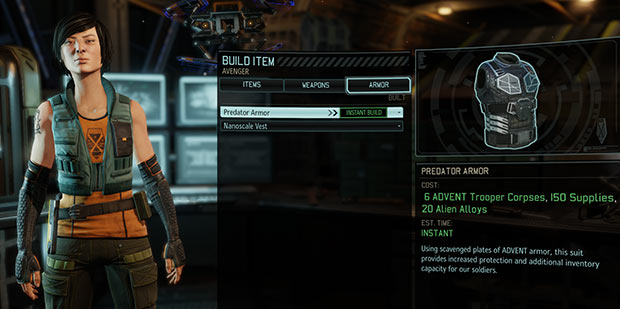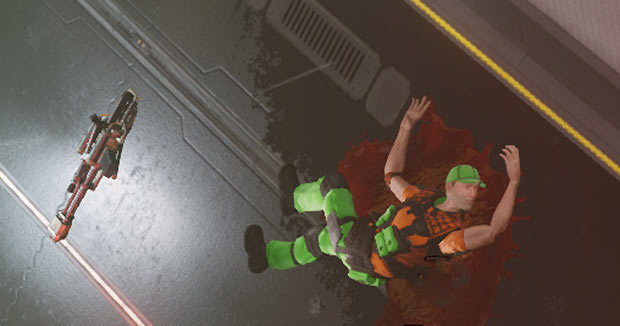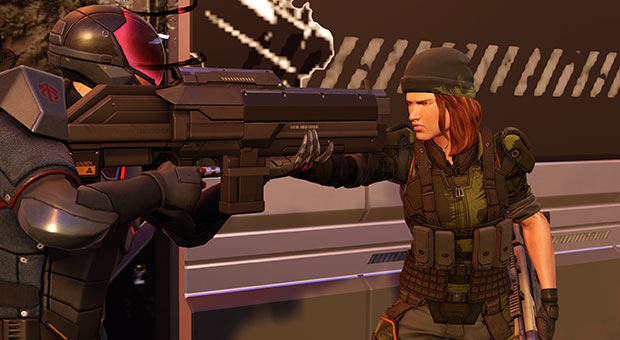XCOM 2 Was Made More Difficult Late In Development: “There Were Definitely Moments Of ‘Is This Too Much?'”
XCOM 2 was made significantly more difficult late in its development cycle after playtesting suggested it was too easy, says the game’s lead designer. “I remember saying ‘you know what, we’re going to make the game a lot harder. We’re going to go back and make the game a lot harder on every level, because this game is not engaging people the way it should,'” Firaxis’ Jake Solomon told RPS. “Of course it triggered a fairly mad rush to balance things out, but I think when the game got more difficult then you started to see people engaging, you felt that spark of life.”
However, he acknowledged that some players might be struggling with the game as a result. “There were definitely moments of ‘is this too much?’ and how do we cater to people that maybe don’t want that experience?”
Solomon also felt that the presentation of the game’s difficulty settings might be to blame for this frustration. “I made a mistake, I think, by calling the lowest difficulty Rookie”.
“The difficulty’s actually one of those things that can be traced to a particular conversation pretty late – very late, actually – in development,” project lead Solomon revealed in an interview to be published in full tomorrow.
“I had been pushing the mantra for a long time that we need to make Normal or Veteran difficulty basically an ‘I want to see the cinematics’ mode, an ‘I want to see the story’ mode, and the player can get through it and it shouldn’t be that difficult. But very, very late in development all the team was playing the game and they were coming back saying “yeah… it’s fun. But it’s pretty easy.” And I started to get kinda worried.
“On the one hand you’ve got all these developers who are super-hardcore XCOM players, but then on the other hand I was ‘if we don’t make the game hard, a lot of the design systems don’t engage.’ If the player isn’t put under pressure, then on the strategy layer a lot of things don’t kick in. The player just doesn’t have to engage with the systems.
“Let’s say the cost of recruits – that’s a very small example, but there are a lot of things where the player was just breezing through the game. So I remember thinking ‘wow, actually this game would be improved if everybody had a much more challenging time of things.'”
Solomon acknowledged that XCOM “is definitely more difficult” than its predecessor XCOM: Enemy Unknown, but felt that some criticisms of its challenge stemmed from how players approached the game.
“Some of them think that the right way to play is to beat the mission without losing anybody,” said Solomon. “That’s fine, it’s certainly fine to think that’s the way you want to play the game, but that I think has led to some frustration in people if they view XCOM as a puzzle – that there is an optimal path so that if you do things right nobody dies. XCOM is not actually a puzzle, it has all these much more unpredictable elements to it. There are cases where it’s difficult to imagine getting through a mission without somebody dying.”
“Obviously some people respond really positively to the difficulty and others say ‘it’s too much’, and that’s something we’re thinking about. Personally as a designer, my experience is that all feedback is factual, so when you do hear feedback like that my instinct is not to say ‘you are incorrect.’ My reaction is always to say ‘ok, does that have to be at odds with the other people who are enjoying the difficulty, and if not, how do we find a way to make both people happy?'”
The base-management aspect of the game has been singled out by some as particularly unforgiving, with its high costs and apparent hard choices related to unlocks and upgrades. “If you’re not spending more than you’re bringing in… it’s a standard strategy design, it’s in XCOM particularly but Sid [Meier] does this too. You give the player five options, all of which seem viable and seem cool and seem necessary, but you only let them pick one. Then by the time they buy that one, we’ve added two more which are also cool. You’re trying to offer the player things that are all beneficial things that the player wants, they just can’t afford all of them at once.”

“We had a very big audience for Enemy Unknown, and it’s a strategy game. And you’ve got to assume that a really big portion of your audience is gonna come back and they’re going to be familiar with Enemy Unknown. You couldn’t possibly just give people the same difficulty as Enemy Unknown if they’re experienced with the product, but at the same time how do you cater to people who have never played an XCOM game?”
The concerns some have expressed about the game’s challenge (
and, for the record, this correspondent does not share those concerns) may stem from how its difficulty settings were communicated. “I made a mistake, I think, by calling the lowest difficulty Rookie,” admitted Solomon.
“I should probably have put in a fake difficulty below the lowest difficulty. As I get older I give less of a shit about my ego as I play games, but there is something about clicking on the bottom difficulty in a game that purportedly is about challenge. I think that maybe that is a hard pill for people to swallow. ‘I’m not going to take the easy way out’, but then I called it ‘Rookie’ which is, y’know. All these other difficulties have awesome names, and then you’ve got that… ”
“Actually, after that I realised that why on Earth did we do only four difficulty levels? Civilziation has six or something like that. We just need more difficulty levels, that’s what it is. There’s nothing like coming up with the answers after you ship. Genius at work here, people!”
Our full interview with Jake Solomon, in which he also discusses its links to the original X-COM games, its move towards more story and its art and tactical design, will be published tomorrow.
























 Since I waited a while before starting the first blacksite, enemies had turned into Mootons and a Codex, with a second Mooton pod adding from a patrol. Too my big surprise, I managed to kill them all with only one minor wound on Andheira, the
Since I waited a while before starting the first blacksite, enemies had turned into Mootons and a Codex, with a second Mooton pod adding from a patrol. Too my big surprise, I managed to kill them all with only one minor wound on Andheira, the 














